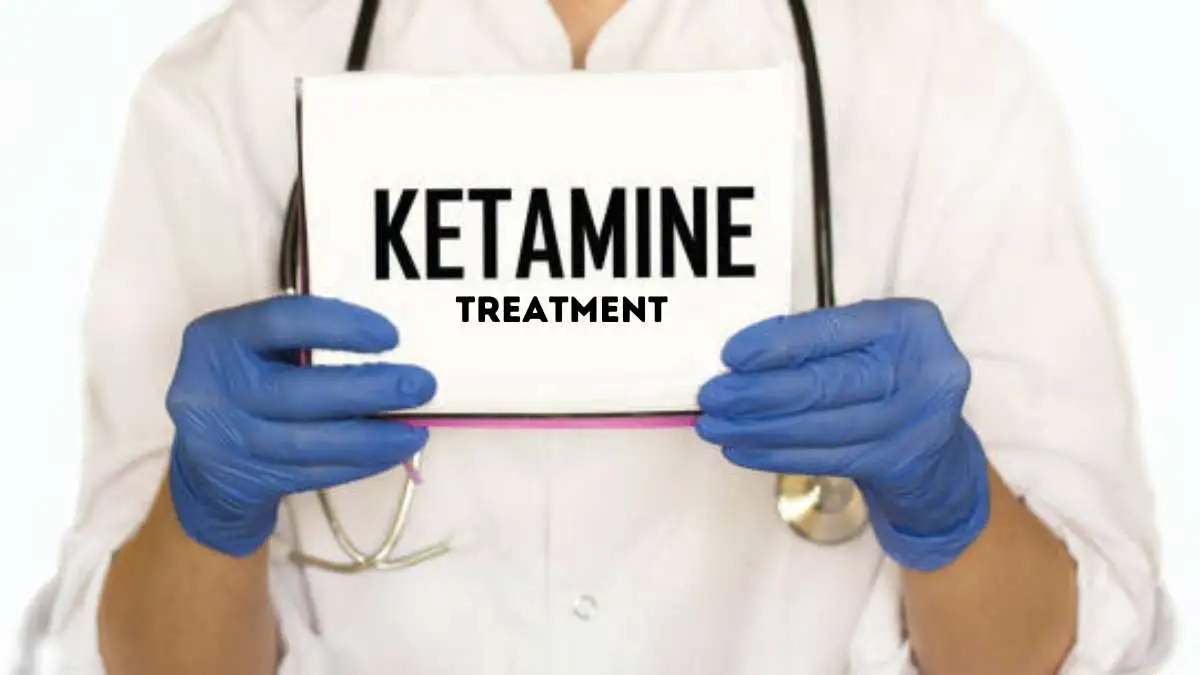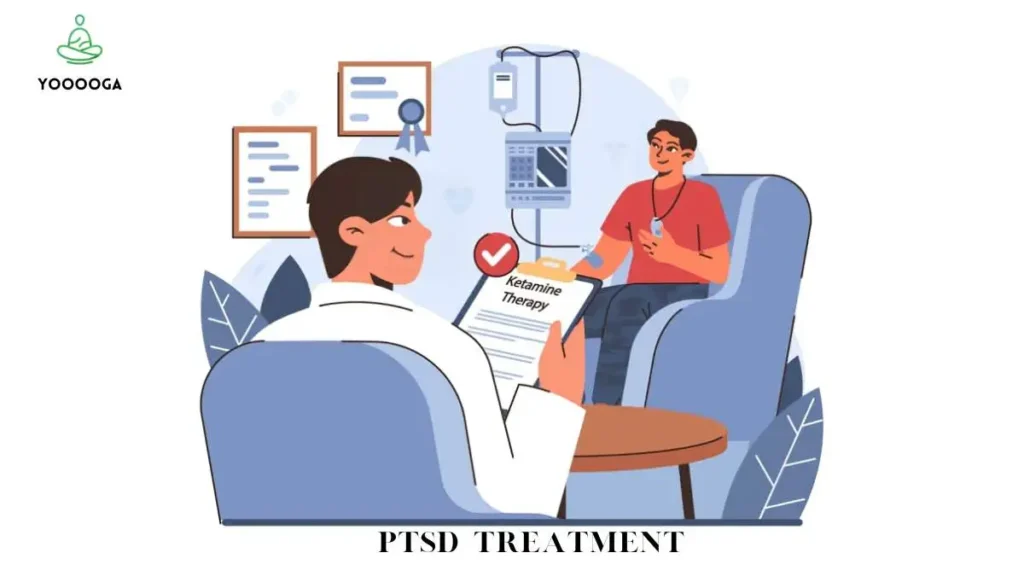GENERAL
Understanding How to Qualify for Ketamine Treatment

Considering ketamine treatment requires understanding its purpose and benefits. This treatment might be an option for those with severe depression or PTSD. An alternative to standard treatment methods, ketamine offers a faster and more effective way to tackle mental health issues.
In this article, we will discuss how to qualify for ketamine treatment and the potential benefits it can offer.
Table of Contents
Medical History Evaluation
A thorough medical history evaluation is crucial before starting ketamine treatment. Healthcare providers will review past and present medical conditions to ensure suitability. This helps identify any potential risks or contraindications associated with ketamine use.
The evaluation involves discussing past treatments for mental health issues. Knowing which treatments were tried and their effectiveness aids in tailoring the therapy. This step ensures the treatment plan is as effective as possible.
The medical history evaluation includes a discussion on substance use. It is important to rule out any issues related to drug interactions or dependencies. Open and honest communication with your healthcare provider during this phase is essential.
Psychiatric Assessment
A psychiatric assessment is key to understanding your mental health status. It involves a series of questions about your mood, thoughts, and behavior. This helps the healthcare provider determine the severity of your condition.

The assessment may include standardized surveys or interviews. These tools measure symptoms and how they impact daily life. The results guide the development of an effective treatment plan.
Additionally, the provider may ask about family’s mental health history. This can reveal patterns or genetic predispositions. Such information is crucial for personalized care.
Previous Treatment Attempts
Understanding previous treatment attempts is essential for ketamine therapy. Patients will need to discuss any medications they’ve taken for mental health issues. It’s important to note whether these methods were effective or not.
This history helps the healthcare provider tailor the ketamine treatment. They will know what has or hasn’t worked in the past. By doing this, they can avoid treatments that are not useful.
Clinicians also consider any side effects from earlier treatments. Adverse reactions to previous medications are significant. This information helps to adjust dosages and treatment plans accordingly.
Physical Health Examination
A physical health examination ensures that ketamine treatment is safe for you. The doctor will check your vital signs and general health. This step helps to catch any health issues that might affect the treatment.
They will review any medications you are currently taking. This is important to avoid harmful interactions. The doctor might also do some lab tests to check your overall health.
The exam helps tailor the treatment to your specific needs. It makes sure your body can handle the therapy. This way, the treatment plan is both safe and effective.
Informed Consent Process
The informed consent process ensures you understand ketamine treatment. Your doctor will explain how the therapy works and its possible effects. They will also discuss the cost of ketamine therapy.
You should ask any questions you have during this time. Understanding each part of the treatment is very important. This helps you make the best decision for your health.
You will need to sign a consent form before starting treatment. This form shows that you understand the therapy and agree to it. It’s important to be honest and clear with your doctor.
Mental Health Screening
Mental health screening is a vital step before starting ketamine treatment. It involves simple tests to assess your mental well-being. These tests help identify conditions like depression or anxiety.
Screening includes answering questions about your feelings and behavior. The answers show the severity of your symptoms. This helps doctors decide if ketamine is right for you.
Mental health screening can also highlight other issues. It can cause problems like substance abuse or bipolar disorder. Identifying these is key to providing the best care.
Treatment Plan Development
Developing a treatment plan is vital for effective ketamine for PTSD treatment. The doctor will design a plan based on your specific needs. They aim to make the therapy as effective as possible.

The treatment plan may include the dose and schedule of ketamine. It ensures you get the right amount at the right time. Frequent check-ins help to see how well the treatment works.
Adjustments can be made as needed to improve results. This ensures the treatment stays effective and safe. With the right plan, ketamine therapy has a higher chance of success.
Financial Considerations
Cost is a big factor when thinking about ketamine treatment. Prices can vary, so it’s important to look for the cheapest ketamine therapy that meets your needs. Talk to your doctor about all the costs involved, including sessions and any extra fees.
Insurance may help cover the costs, but not always. Check with your insurance company to see if they will pay for the treatment. If they don’t, ask your provider about payment plans or financial aid options.
Understanding costs helps you plan better. It avoids unexpected bills later on. The goal is to get the best care without a financial burden.
Monitoring and Follow-Up
During ketamine treatment, regular check-ins are crucial. Your doctor will monitor your progress to make sure the therapy is working. This includes assessing your mental well-being and any side effects.
Follow-up appointments are also important after completing the initial course of treatment. These appointments ensure that you continue to experience relief from symptoms. They may also involve adjusting or continuing the treatment plan.

Your healthcare provider will work with you to determine a personalized monitoring and follow-up schedule based on your individual needs.
How to Qualify for Ketamine Treatment and Reclaim Your Well-Being
Understanding how to qualify for ketamine treatment involves several steps. Medical history evaluation and psychiatric assessment are essential. Physical health examinations are also necessary to ensure safety.
Previous treatment attempts and mental health screening provide useful insights. The informed consent process clarifies expectations and responsibilities. These steps help to develop an effective treatment plan.
Financial considerations are important to manage costs. Regular monitoring and follow-up ensure ongoing progress. Together, these ensure a comprehensive approach to ketamine therapy. It can help you reclaim your well-being and improve your mental health.
Want to read some more informative articles like this one? Poke around on the rest of our blog to see what interests you.
-

 GENERAL2 months ago
GENERAL2 months agoUncovering the World of кинокрадко: The Dark Side of Film Piracy
-

 GENERAL1 month ago
GENERAL1 month agoUnveiling the Art of преводсч: How Translators Bridge Language Barriers
-

 YOGA1 year ago
YOGA1 year ago4 Person Yoga Poses for Beginners
-

 GENERAL2 months ago
GENERAL2 months agoThe Journey of iamnobody89757: From Anonymous User to Internet Sensation





























